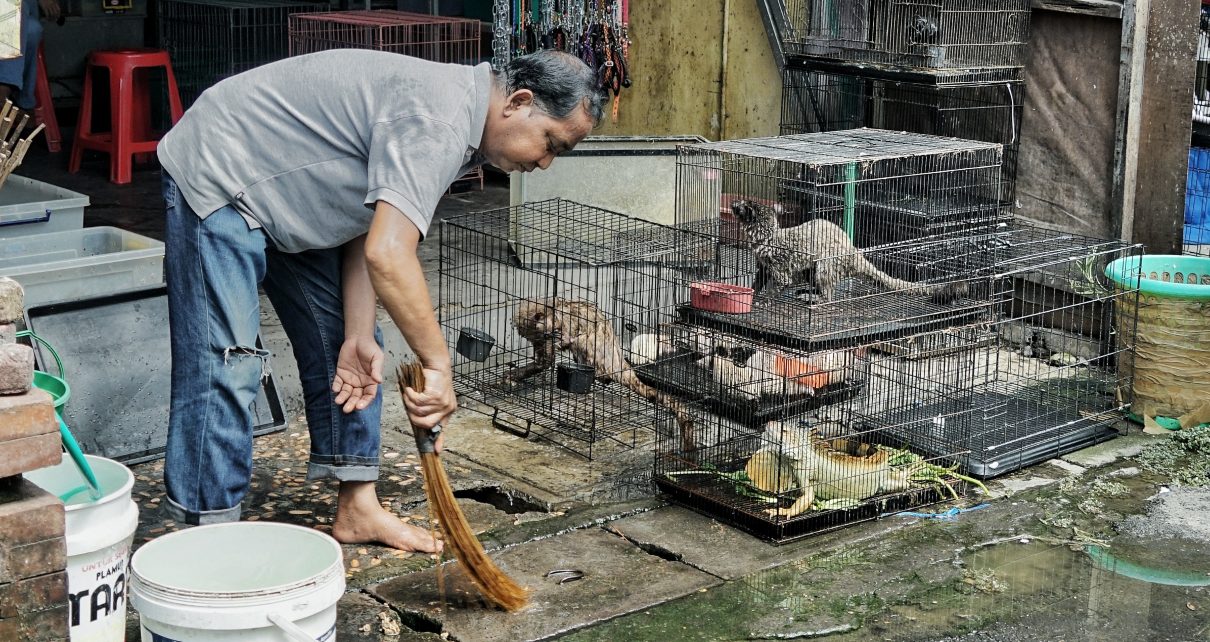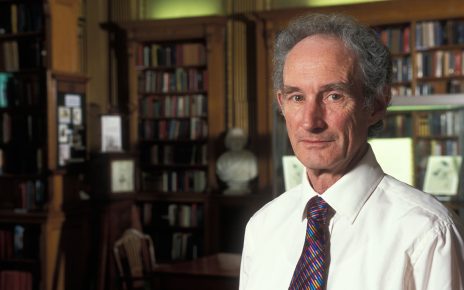It is no small task to predict which of the hundreds of thousands of unknown pathogens existing naturally in animals will spill over to people and cause the next pandemic. But one thing is clear: A major factor driving spillover events such as the current COVID-19 pandemic is the trade in live and fresh wildlife for human consumption (whether legal or illegal).
Removing wild animals from nature and transporting them to commercial markets where the close proximity of animals and people poses a significant public health risk is a practice that can no longer be tolerated. Zoonoses—the term for infectious diseases that pass between people and animals—affect millions of people each year, with three quarters of new human pathogens identified in the past three decades originating in animals.
The U.S. government must reengage in its commitment to address zoonotic diseases. While the first Coronavirus Supplemental Funding Package included $435 million for global health programs, zoonotic surveillance was not one of the priority activities. After leading for more than two decades in the establishment of global early warning systems for epidemics, the USG must reestablish its preeminent role.
Our voice is needed more than ever. Habitat destruction, deforestation and the conversion of land for industrial-scale farming and other uses accelerate our ability to take animals from wild places and put wildlife—and the pathogens they contain—in ever more frequent contact with each other and people. Once an animal enters a commercial supply chain, the risks of viral recombination, emergence and transmission increases.
Rigorous enforcement of existing laws, regulations and international treaties that deal with wildlife trade and markets is critical, but will not be enough. Legal and sustainable trade is no protection against virus spillover. Indeed, the preponderance of scientific evidence suggests that the coronavirus responsible for the global COVID-19 pandemic originated in a wildlife species—most likely a bat.
In more rural and poorer parts of the world, local people frequently rely on wild birds and mammals for food because they have no alternatives. As a global community, we must work to ensure that they gain access to sustainably produced poultry, fish, invertebrates and plants to both meet dietary needs and reduce the risk of exposure to new zoonotic pathogens.
Indigenous peoples use wild animals to feed their families, generate income and to retain their cultural identity. Outreach to raise traditional hunters’ awareness of ways to minimize zoonotic disease transfer will reduce risks to their health and to the general public. The legal and illegal transport to markets of live wildlife leads both to their injury and stress, resulting in the “shedding” of more pathogens in animals’ urine, feces and blood, facilitating mutations and recombinations that render viruses a direct disease threat to people.
If we are to reduce the likelihood of future pandemics like COVID-19, we must adopt a comprehensive approach for which the U.S. government has a critical role to play. Ending the global commercial trade in live and fresh wildlife for human consumption constitutes a major pillar and will require international cooperation with governments, intergovernmental organizations, and communities.
Senators John Cornyn and Cory Booker and Representatives Mike Quigley and Fred Upton have introduced bipartisan legislation that would take several important steps towards closing markets that trade in live terrestrial wildlife, starting with a U.S. ban on the import, export and domestic sale of live wildlife for human consumption. This bill directs the Department of State to work with other nations and international organizations to push for similar bans of markets that trade in live wildlife for human consumption around the world.
The legislation also provides resources to develop appropriate alternative sources of food to help remote communities that rely on hunting wildlife for food security. Prompt passage of this legislation would show U.S. leadership on an issue with which the world continues to struggle
Separately, we must establish both a nonpartisan zoonotic disease interagency task force headed by the president’s national security advisor and a new “One Health” strategy to leverage the public health, wildlife health and livestock veterinary expertise necessary to combat the current and future pandemics.
We need a new paradigm to avoid future pandemics. When we view the hundreds of thousands of unknown pathogens against the human health, global and national security, economic, social and ecological costs of the current pandemic, it is clear that a failure to address the root cause would be grossly negligent.
The U.S. government has an opportunity to lead in avoiding future pandemics. By its very nature, a pandemic is not a one-country problem. Nor is it a one-party problem. The COVID-19 crisis can be a wake-up call for us all to bring balance back to our fractured relationship with nature, or it can be just the latest in a continuing series of global health crises. The choice is ours.



